Coils loaded on a coil container
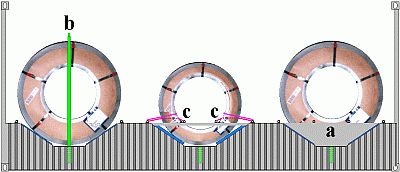 |
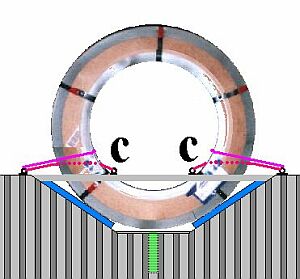 |
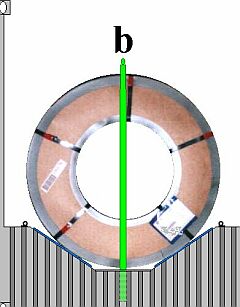 |
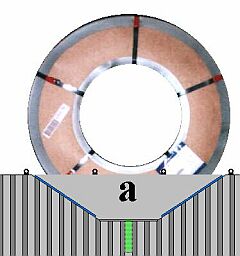 |
| Top and selective enlargements below: Coils loaded on a coil container - side view |
|
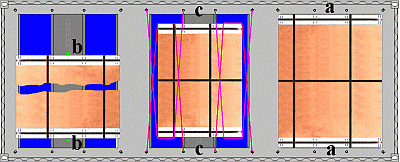 |
|
| Coils loaded on a coil container - plan view |
Depending on their dimensions, coils may rest directly against the sides of the coil trough (a), be secured by stanchions (b) or be held in position by loop lashings passed through the coil eye (c).
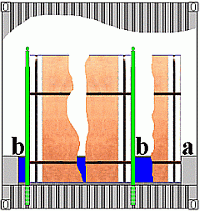 |
Coils loaded on a coil container - cross-section |
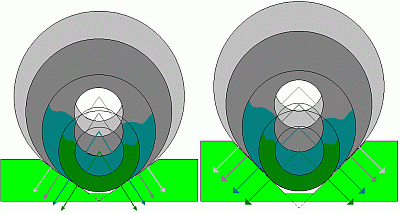 |
|
| Coils of various diameters in a 35° and 45° coil trough |
The flank angle directly determines the degree of securing and the strength of the components to be selected by the designer. Components must be dimensioned in accordance with the highest acceleration forces encountered.
At present, it is not yet usual to find special box containers which have lengthwise cargo troughs which can be covered over and are thus also suitable for carrying general cargo of relatively low stowage factors. Due to their depth, once the troughs are covered over, all that remains is a container with a small volume-to-payload ratio. For some regions of service, constructing such containers may prove entirely worthwhile.
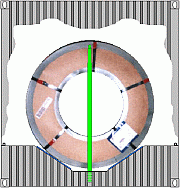 |
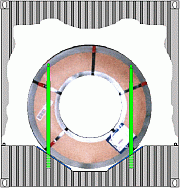 |
|
| Cross-section of coil box container with one row of stanchions | Cross-section of coil box container with two rows of stanchions |
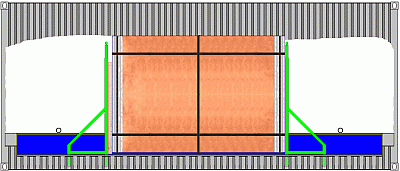 |
|
| Coil box container - side view |
Coil box containers with ordinary or special stanchions which can be inserted in one or two rows of stanchion pockets are conceivable. In conjunction with the trough, the stanchions may provide the basis for tight fit securing. Small gaps may be filled with lumber or other similar materials. All stanchions should on principle be secured against being lifted out.
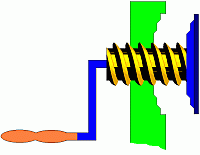 |
Jack screw fitted into a stanchion to close gaps in the stow |
Additional special fitting on stanchions could make it possible to close small gaps with little effort. Cranks, hand wheels or the like are conceivable.
Standard equipment for coil containers or special coil box containers, or indeed for any means of transport, should include a sufficient number of lashing points with a sufficient loading capacity.